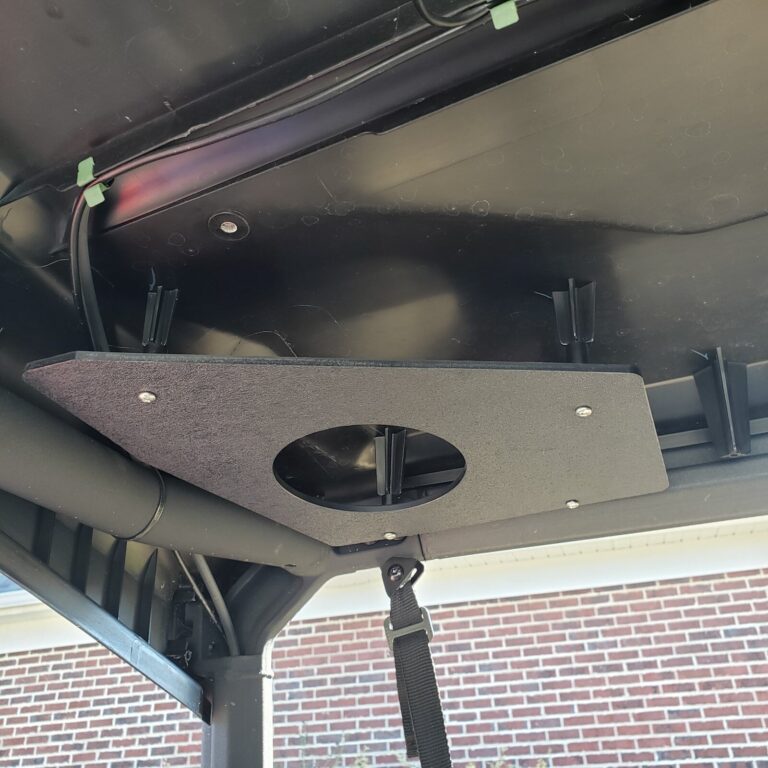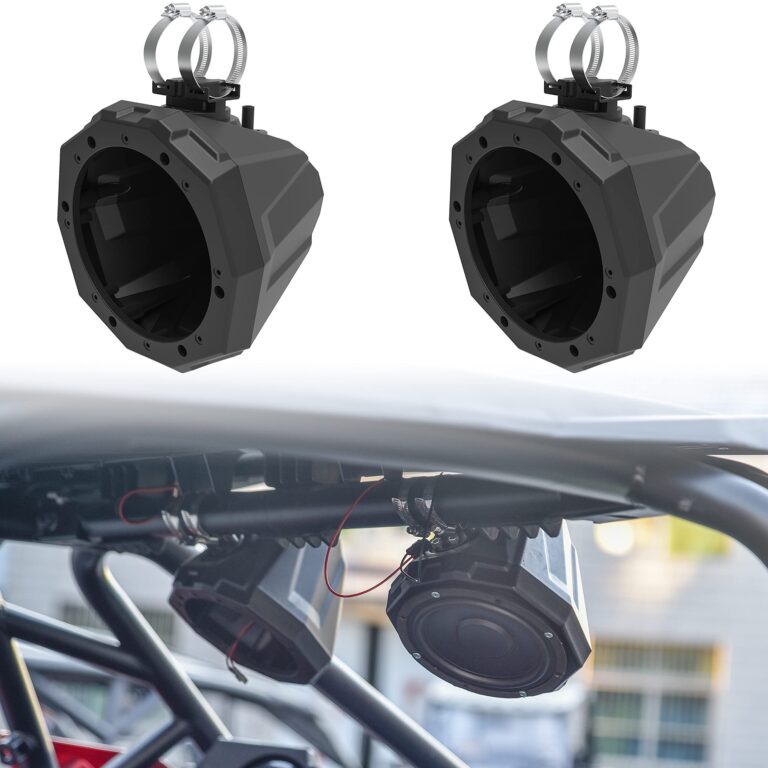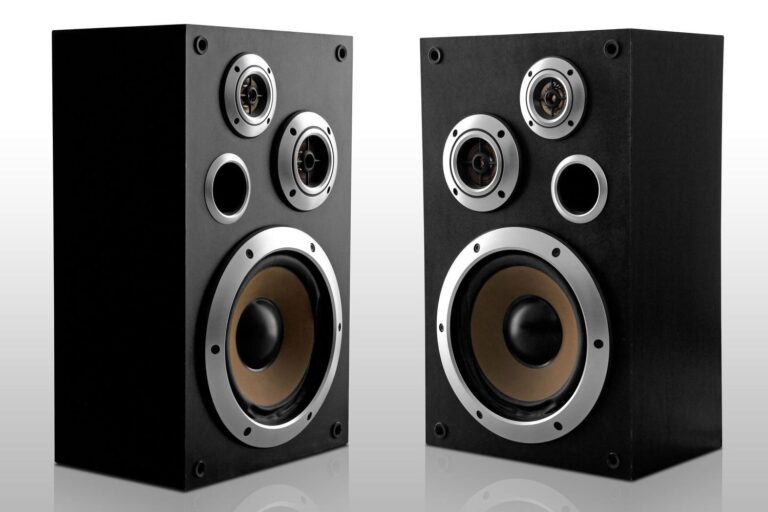Using A Soundbar As A Center Speaker: Pros, Cons, And How-To
Can you use a soundbar as a center speaker? The short answer is yes! If you’re looking to enhance your home theater audio setup without the need for multiple speakers cluttering your living space, using a soundbar as a center speaker might be an ideal solution. Soundbars offer a compact and sleek design while providing powerful audio performance. In this article, we will explore the concept of using a soundbar as a center speaker, discuss the necessary connections, and offer tips on optimizing your audio experience. So, let’s dive in and explore the world of utilizing a soundbar as a center speaker.
Can I Use a Soundbar as a Center Speaker?
The center speaker is a crucial component of any home theater setup. It is responsible for delivering clear and precise dialogue, ensuring an immersive and balanced audio experience. Many people wonder if they can use a soundbar as a center speaker, as soundbars are becoming increasingly popular due to their convenience and space-saving design. In this article, we will explore the possibilities and limitations of using a soundbar as a center speaker.
Understanding the Role of a Center Speaker
Before diving into the compatibility of soundbars as center speakers, it’s important to understand the function of a center speaker in a home theater system.
The center speaker primarily reproduces dialogue and other central audio elements in movies, TV shows, and games. Placed above or below the screen, it helps anchor sound to the action happening on the display, providing a more realistic and immersive listening experience.
The Pros and Cons of Using a Soundbar as a Center Speaker
Using a soundbar as a center speaker presents both advantages and disadvantages. Let’s explore them in detail.
Pros:
- Convenience: Soundbars are compact and easy to set up, making them a popular choice for those seeking simplicity.
- Space-saving: Traditional home theater systems often require multiple speakers, whereas a soundbar combines several speakers into a single unit, minimizing clutter.
- Cost-effective: Compared to building a complete home theater system, purchasing a soundbar can be more budget-friendly, especially for those on a tight budget.
- Better sound than TV speakers: Soundbars generally offer improved sound quality compared to built-in TV speakers, making them a significant upgrade for those seeking enhanced audio performance.
Cons:
- Limitations in audio separation: Soundbars are designed to create a wider soundstage, but they may struggle with precise audio localization as compared to dedicated center speakers.
- Limited expandability: While soundbars are great for small to medium-sized rooms, they may not provide the flexibility for future expansion or customization that comes with a traditional home theater setup.
- Dependence on room acoustics: Soundbars may not perform optimally in rooms with challenging acoustics, as they often rely on walls and objects to reflect sound for a surround effect.
- Potential compatibility issues: Not all soundbars are designed to function as center speakers, so compatibility with your existing equipment should be carefully considered.
Factors to Consider for Using a Soundbar as a Center Speaker
If you are considering using a soundbar as a center speaker, there are a few important factors to take into account:
1. Compatibility:
Not all soundbars are capable of serving as center speakers. Some soundbars are designed solely for stereo audio reproduction and lack the necessary audio processing and drivers to handle the demanding center channel duties. Before making a purchase, ensure that the soundbar explicitly states its ability to function as a center speaker.
2. Connectivity:
Check the connectivity options of the soundbar and your receiver or audio amplifier. Ideally, the soundbar should have an HDMI ARC (Audio Return Channel) or an optical audio input to connect to your TV or audio device. Additionally, ensure that your receiver or amplifier has the appropriate audio outputs to connect to the soundbar.
3. Soundbar Positioning:
Placing the soundbar in an optimal position is crucial for achieving the desired audio experience. Ideally, it should be positioned either above or below the TV screen, with the center of the soundbar aligned with the center of the screen. This placement helps with better audio synchronization between the on-screen action and the sound.
4. Calibration:
Once you have positioned the soundbar as a center speaker, it is essential to calibrate it properly. Most soundbars come with an auto-calibration feature or a built-in microphone that can help optimize the audio settings based on the room’s acoustics. Follow the manufacturer’s instructions to ensure optimal sound quality.
Alternatives to Using a Soundbar as a Center Speaker
If using a soundbar as a center speaker is not suitable for your needs, there are alternative options available that can provide a dedicated center channel experience:
1. Dedicated Center Speaker:
Investing in a dedicated center speaker ensures precise dialogue reproduction and better audio localization. Center speakers are specifically designed to handle the demanding task of delivering clear and balanced dialogue, making them the ideal choice for a true home theater experience.
2. Traditional Home Theater Setup:
Building a traditional home theater system with separate speakers for each channel provides the most immersive and customizable audio experience. This setup involves a combination of front left, front right, center, surround, and subwoofer speakers, along with an AV receiver to control and distribute audio.
While using a soundbar as a center speaker offers convenience, space-saving, and improved audio over TV speakers, it may not provide the same level of performance and flexibility as dedicated center speakers or traditional home theater setups. If precise audio localization and expandability are crucial for your home theater experience, investing in a dedicated center speaker or a complete surround sound system might be the better choice.
Remember to consider factors such as compatibility, connectivity, soundbar positioning, and calibration when deciding whether to use a soundbar as a center speaker. By making an informed decision, you can create a home theater setup that suits your needs and helps you enjoy your favorite movies and shows with enhanced audio clarity.
Frequently Asked Questions
Can I use a soundbar as a center speaker?
Yes, you can use a soundbar as a center speaker in your home audio setup. However, there are a few factors to consider before making this decision.
What is the purpose of a center speaker in a home theater system?
The center speaker is a crucial component of a home theater system as it primarily reproduces dialogue and other center-panned audio. It helps to enhance the overall audio experience by providing clear and distinct vocals, making it easier to follow conversations and enhancing the immersion factor.
Are soundbars suitable as center speakers?
While soundbars are primarily designed to enhance the audio quality of your TV, some models can be used as center speakers. However, it is essential to check compatibility and ensure that the soundbar you choose has a dedicated center channel or a clear dialogue mode to optimize the center speaker experience.
What are the benefits of using a soundbar as a center speaker?
Using a soundbar as a center speaker can be beneficial in terms of space-saving and cost-effectiveness. It eliminates the need for an additional speaker system and reduces clutter, especially for those who prefer a simple and streamlined home audio setup.
Are there any limitations when using a soundbar as a center speaker?
While using a soundbar as a center speaker can be convenient, it may have some limitations compared to dedicated center speakers. Soundbars are often designed to cater to a broader audio field, so they may not provide the same level of spatial separation and imaging as dedicated center speakers. Additionally, soundbars may have limited audio output capabilities compared to larger center speakers.
What should I consider when using a soundbar as a center speaker?
When using a soundbar as a center speaker, ensure that it is placed correctly in the center of your home theater setup, preferably at ear level. Additionally, check for compatibility with your existing audio system and adjust the soundbar settings to optimize dialogue clarity and balance it with other speakers in your setup.
Final Thoughts
Using a soundbar as a center speaker can be a viable option for those looking to enhance their home theater experience. By connecting the soundbar to the center channel output on your receiver or amplifier, you can enjoy clearer dialogue and immersive sound. However, it’s important to note that not all soundbars are designed to function as center speakers. While some models offer this capability, others may lack the necessary features and placement options. Before making a decision, consider the compatibility, sound quality, and positioning aspects to ensure optimal performance. So, can you use a soundbar as a center speaker? It depends on the specific soundbar and its intended functionality.






